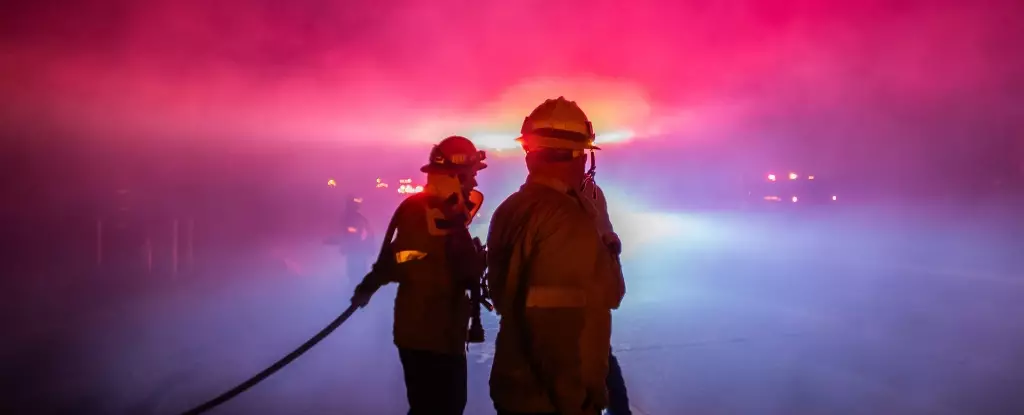The picturesque coastal town of Malibu, known for its stunning views and affluent residents, has found itself under siege as the Franklin wildfire rages on. Beginning late Monday in the hills above the iconic Pepperdine University, the fire rapidly expanded, driven by intense winds and dry conditions. Local authorities have had their hands full, with more than 20,000 residents ordered to evacuate as the flames encroached upon their properties. This wildfire does not discriminate, affecting both ordinary residents and high-profile celebrities who call Malibu home.
Noteworthy names from the entertainment industry have joined the ranks of evacuees, highlighting the chaotic nature of the situation. Veteran actor Dick Van Dyke shared his experience on social media, expressing concern for his pet and the broader community. His message struck a chord, illustrating that even those in the limelight are not immune to the dangers posed by wildfires. In a region where luxury and natural beauty often intersect, the stark reality of fire threats can shatter the illusion of safety.
Firefighters have mobilized in impressive numbers—approximately 1,500 are deployed to combat the flames that have already scorched around 4,000 acres. With containment measures underway, authorities are cautiously optimistic but remain vigilant. Los Angeles County Fire Chief Anthony Marrone warned that the fire’s western perimeter has been particularly troublesome, with no guarantee that it could be contained. The local meteorological conditions, characterized by high winds and low humidity, continue to pose significant challenges, heightening concerns about potential flare-ups.
Helicopters and airplanes have been actively dropping water and fire retardants, providing necessary support to ground crews. However, the lack of electricity in vast sections of Malibu has complicated communication efforts, leaving many residents in uncertainty about the safety of their homes. As the battle against the blaze unfolds, it becomes clear that while firefighting efforts are robust, nature’s unpredictability remains ever-present.
Wildfires are not an anomaly in California; they are part of a troubling trend exacerbated by climate change. Scientists warn that the shifting weather patterns, resulting from humanity’s persistent reliance on fossil fuels, are lengthening dry seasons and increasing the severity of wildfires. The ongoing Franklin fire serves as a brutal reminder of the changing climate and raises important questions about the policies that govern land management.
In past decades, practices that promoted a zero-tolerance approach to wildfire have led to a concerning accumulation of fuel in the form of dried foliage and overgrown brush. As fires ignite, they consume this fuel at alarming rates, transforming ordinary grasslands into infernos that can jump from one area to another with frightening speed. If we are to find a solution to the growing wildfire crisis, integrating fire management practices that include controlled burns and ecological restoration will be essential.
As the wildfires wreak havoc in Malibu, the spirit of the community shines through. Local residents, despite the fear and uncertainty, are coming together to support one another. From creating makeshift shelters to offering resources to those who have lost their homes, the resilience of the Malibu community is inspiring. They face this natural disaster with courage and determination, embodying the strength needed to navigate such overwhelming challenges.
This catastrophic fire serves as both a dire warning and an opportunity for the community at large to reflect on the importance of preparedness and resilience. As Malibu continues to grapple with the aftermath of the Franklin wildfire, lessons learned from this episode may help shape future responses to natural disasters. The hope is that communities will not only recover but will adapt to the ever-evolving threat of wildfires, ensuring a cooler, more united future for all.
In sum, as efforts intensify to combat the Franklin wildfire, Malibu’s current plight underscores a broader narrative of environmental change, community spirit, and the urgent need for proactive solutions to the consequences of climate change.


Leave a Reply